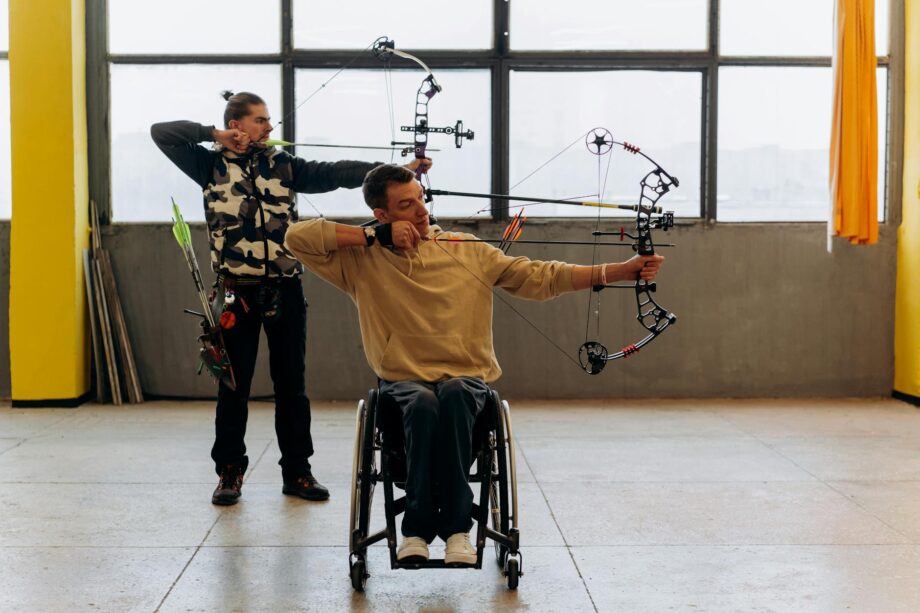
We often admire confident people from afar. The speaker who owns the room. The friend who handles uncertainty with calm. The entrepreneur who bets on ideas no one else believes in. We imagine they were born differently.
But here’s the truth most people miss: Confidence is a skill that can be learned and mastered by anyone, not just the fortunate few. This revelation changes everything about how we approach personal growth and fear management.
Why Confidence Is a Skill You Can Develop
For decades, psychologists have debated whether confidence is an inherent personality trait or something that can be developed. Modern research decisively supports the latter view. Studies from institutions like Stanford and Harvard have shown that confidence grows through deliberate practice, much like learning a musical instrument or mastering a sport.
The implications are profound: if confidence is a skill, it means anyone can develop it with the right approach and consistent effort. You’re not limited by your genetics or upbringing. You’re only limited by your willingness to practice.
Table of Contents
1. Understanding Fear’s True Nature
Fear Is Not Your Enemy
Fear is not the villain. It’s just a messenger. It whispers, “Be careful,” “Stay small,” or “Don’t fail.” It’s your brain’s way of protecting you from rejection, pain, or embarrassment.
But here’s where we go wrong: We assume fear is a red light. Something to obey. Understanding that fear is a signal, not a stop sign, is a powerful realization. It puts you in the driver’s seat, allowing you to choose your actions despite the fear.
Mastering this understanding is the first step in developing confidence as a skill. When you recognize fear as information rather than instruction, you reclaim your power to choose.

2. The Power of Repetition
Building Confidence Through Practice
Think about your first bicycle ride. You didn’t magically know how to balance. You fell. You panicked. You questioned yourself. But with practice, balance became second nature. You didn’t get rid of fear. You reprogrammed your body to move despite it.
Confidence is a skill that works the same way. Each repetition creates new neural pathways, making confident actions more automatic over time.
Start small with these confidence-building exercises:
- Speak up in a meeting with just one comment
- Share an idea online, even if it’s not perfect
- Initiate a conversation with someone new
- Ask a question you’ve been hesitant to voice
With each micro-action, you prove something to yourself: “I can handle this.” This is how you develop confidence as a skill.
3. Tracking Small Wins
Celebrating Your Progress
We often underestimate our growth. But every single step matters. Confidence isn’t built in one grand leap—it’s sculpted through small, deliberate, courageous acts.
Create a confidence journal to track your progress:
- Note moments when you spoke up despite hesitation
- Record conversations you initiated
- Acknowledge when you set boundaries
- Celebrate attempts regardless of outcome
By consistently putting in effort, you build momentum. It’s not about achieving perfect results but about the journey and the progress you make. This is what keeps you motivated and inspired in developing confidence as a skill.

4. Creating Your Courage Gym
Daily Confidence Workouts
If you wanted stronger muscles, you’d hit the gym. Confidence is a skill that requires the same approach. Design your personal “courage gym” with these exercises:
- Idea sharing: Share one idea publicly each day
- Connection challenge: Initiate conversations with new people weekly
- Boundary setting: Say “no” where you usually say “yes”
- Comfort zone expansion: Try something that scares you—even slightly
These are not motivational quotes. They are mental pushups. And the more you train, the more you strengthen confidence as a skill.
5. Distinguishing Fear from Danger
The Critical Difference
Not everything that scares you is bad. Some fears protect you from real harm. But most fears? They’re outdated alarms—leftover from childhood, trauma, or old insecurities.
Learning to differentiate is crucial for developing confidence as a skill:
| Real Danger | Perceived Fear |
|---|---|
| Jumping off a cliff without safety | Asking for feedback |
| Walking alone in dangerous areas at night | Applying for a promotion |
| Touching a hot stove | Sharing creative work |
| Driving recklessly | Speaking in public |
By learning to differentiate between real danger and perceived fear, you create a safe and effective training ground for yourself. This helps you make confident decisions and take calculated risks as you develop confidence as a skill.
Practical Confidence Building Techniques
Now that we’ve established that confidence is a skill, let’s explore practical techniques to develop it:
The 5-Second Rule
When you feel hesitation, count backward from 5 and take action at 1. This interrupts the fear cycle and creates space for confident action.
Power Posing
Adopting expansive postures for just two minutes can increase testosterone and decrease cortisol, making you feel more confident.
Cognitive Reframing
Transform negative self-talk into empowering statements. Instead of “I can’t do this,” try “I’m learning to do this.”
Gradual Exposure
Systematically face fears starting with low-intensity situations and gradually increasing the challenge as your confidence grows.

The Transformative Power of Practiced Confidence
People often ask, “How do I stop being afraid?” The answer isn’t to stop fear. The answer is to take action while afraid.
Because the truth is this: Confidence is a skill that isn’t about eliminating doubt. It’s about trusting yourself enough to move forward despite it.
Start Your Confidence Journey TodayFinal Thoughts
You don’t need to wait for some magical day when you “feel ready.” You don’t need to pretend you’re fearless. All you need to do is practice showing up. One small action at a time.
Eventually, fear becomes your teacher. Mistakes become mentors. And confidence? It becomes your reward for developing confidence as a skill.
Remember: Confidence is a skill that anyone can develop. It’s not reserved for the naturally gifted or exceptionally talented. It’s available to anyone willing to put in the practice, embrace discomfort, and celebrate small victories along the way.


Leave a Reply